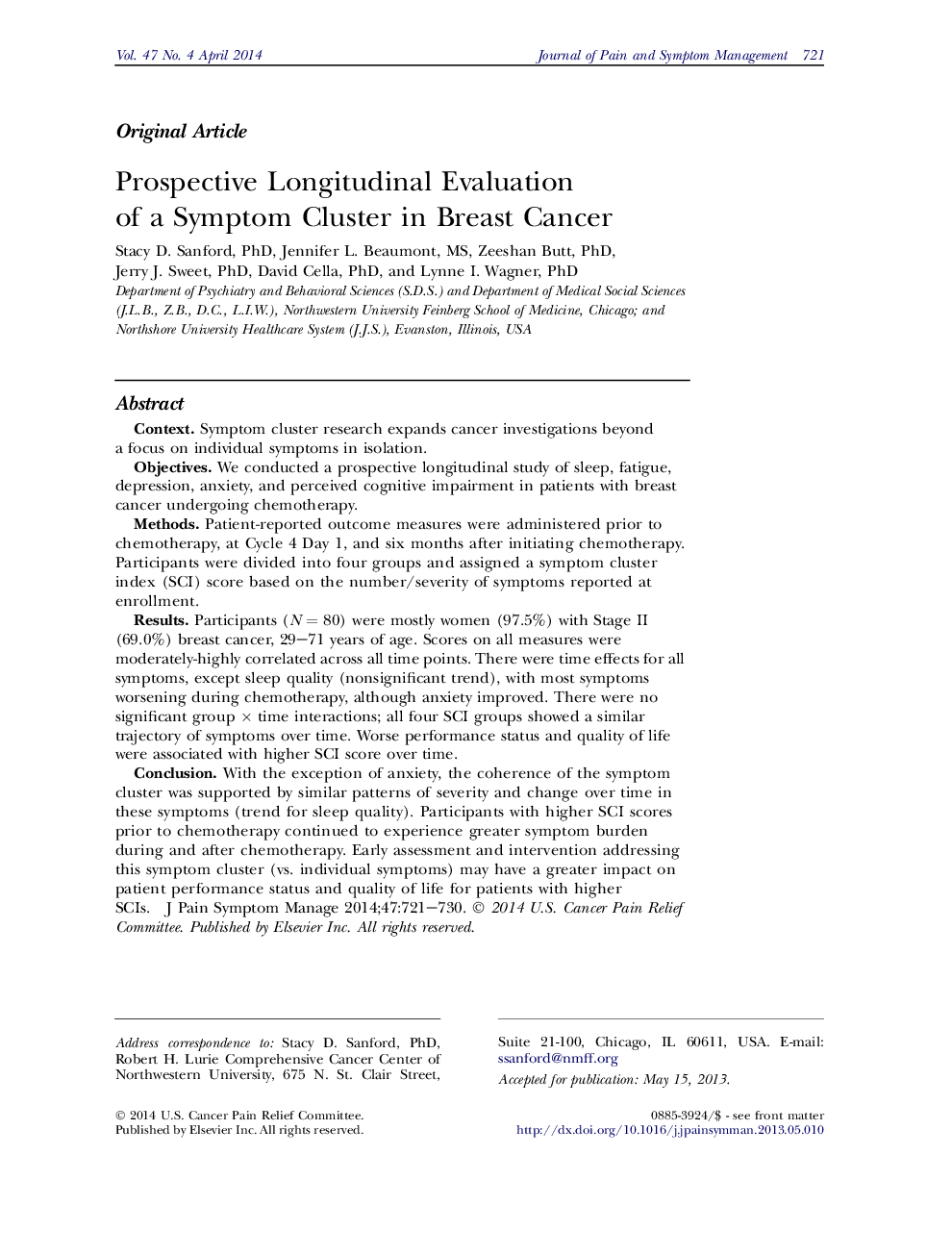| Article ID | Journal | Published Year | Pages | File Type |
|---|---|---|---|---|
| 2724176 | Journal of Pain and Symptom Management | 2014 | 10 Pages |
ContextSymptom cluster research expands cancer investigations beyond a focus on individual symptoms in isolation.ObjectivesWe conducted a prospective longitudinal study of sleep, fatigue, depression, anxiety, and perceived cognitive impairment in patients with breast cancer undergoing chemotherapy.MethodsPatient-reported outcome measures were administered prior to chemotherapy, at Cycle 4 Day 1, and six months after initiating chemotherapy. Participants were divided into four groups and assigned a symptom cluster index (SCI) score based on the number/severity of symptoms reported at enrollment.ResultsParticipants (N = 80) were mostly women (97.5%) with Stage II (69.0%) breast cancer, 29–71 years of age. Scores on all measures were moderately-highly correlated across all time points. There were time effects for all symptoms, except sleep quality (nonsignificant trend), with most symptoms worsening during chemotherapy, although anxiety improved. There were no significant group × time interactions; all four SCI groups showed a similar trajectory of symptoms over time. Worse performance status and quality of life were associated with higher SCI score over time.ConclusionWith the exception of anxiety, the coherence of the symptom cluster was supported by similar patterns of severity and change over time in these symptoms (trend for sleep quality). Participants with higher SCI scores prior to chemotherapy continued to experience greater symptom burden during and after chemotherapy. Early assessment and intervention addressing this symptom cluster (vs. individual symptoms) may have a greater impact on patient performance status and quality of life for patients with higher SCIs.
